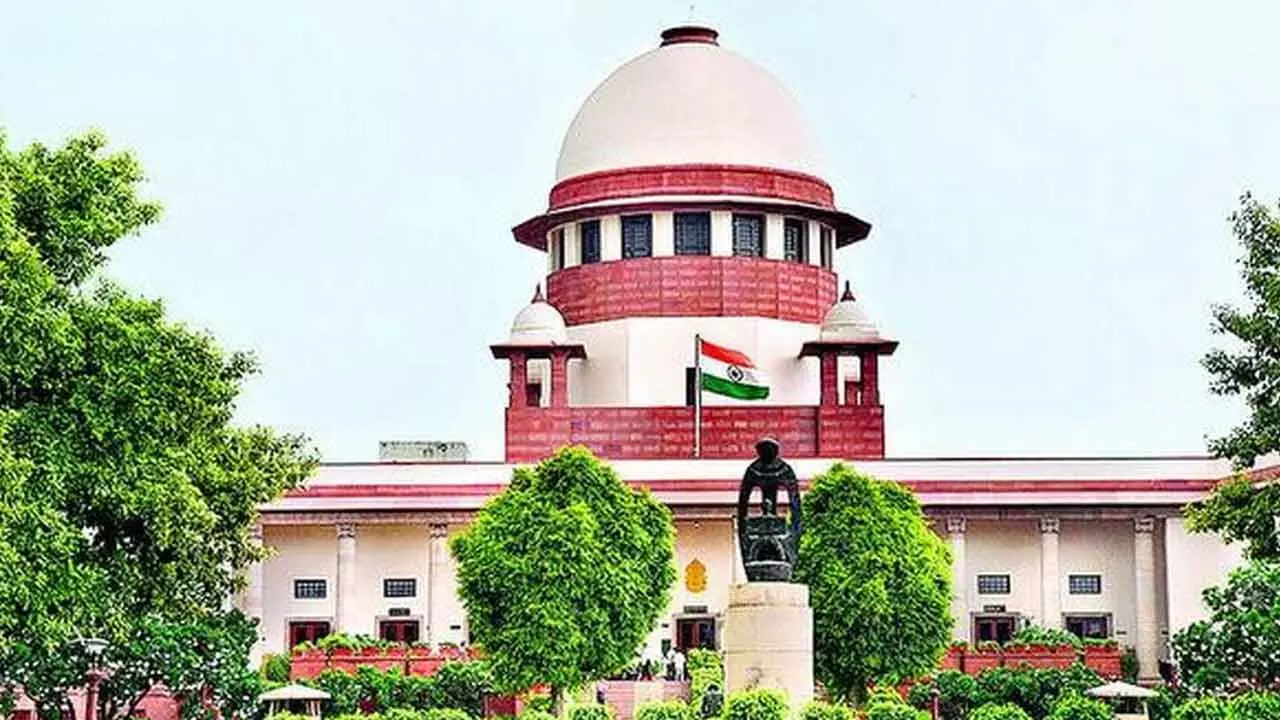Live
- Now, tackle pest menace in hostels with LED lights
- Hyderabad: Students protest over appointing Physics prof as EdCET convener
- Young doctors urged to work for healthy community
- Bhavani Deeksha Viramana continues
- Sridhar Babu hardsells key sectors to Malayasia
- Health Min Damodar Raja Narsimha holds meet to improve infra in govt hosps
- Inter exam fee last date extended
- Outrage as stray dogs poisoned in Sullurpeta
- Hyderabad soaks in vibrant Yuletide spirit
- Heavy rains forecast at isolated places in AP
Just In
New bench to decide AMU minority status: SC


New Delhi: The contentious legal question over Aligarh Muslim Unversity's minority status would be decided by a new bench, the Supreme Court held on...
New Delhi: The contentious legal question over Aligarh Muslim Unversity's minority status would be decided by a new bench, the Supreme Court held on Friday and overruled the 1967 judgement that said the university cannot be considered a minority institution since it was created by a central law.
In a 4:3 majority verdict, a Constitution bench headed by Chief Justice D Y Chandrachud, said a legislation or an executive action that discriminated against religious or linguistic minorities in establishing or administering educational institutions, was ultra vires Article 30(1) of the Constitution. Article 30 deals with the right of minorities to establish and administer educational institutions.
Article 30 (1) says all minorities, whether based on religion or language, shall have the right to establish and administer educational institutions of their choice.
“The view taken in Azeez Basha (1967 verdict) that an educational institution is not established by a minority if it derives its legal character through a statute, is overruled,” held the CJI, who authored the 118-page verdict, also on behalf of Justices Sanjiv Khanna, J B Pardiwala and Manoj Misra.
A five-judge Constitution bench in the S Azeez Basha v. Union of India in 1967 said AMU was a central university and couldn’t be considered a minority institution. “Additionally, a linguistic or religious minority which has established an educational institution receives the guarantee of greater autonomy in administration. This is the ‘special rights’ reading of the provision,” the majority verdict said.
Justice Chandrachud held that religious or linguistic minorities must prove that they established the educational institution for the community to be a minority educational institution for the purposes of Article 30(1). “The right guaranteed by Article 30(1) is applicable to universities established before the commencement of the Constitution,” he said. The CJI outlined the factors which must be used to determine if a minority has “established” an educational institution.
“The indicia of ideation, purpose and implementation must be satisfied. The idea for establishing an educational institution must have stemmed from a person or group belonging to the minority community and the educational institution must be established predominantly for the benefit of minority community,” he wrote.

© 2024 Hyderabad Media House Limited/The Hans India. All rights reserved. Powered by hocalwire.com






